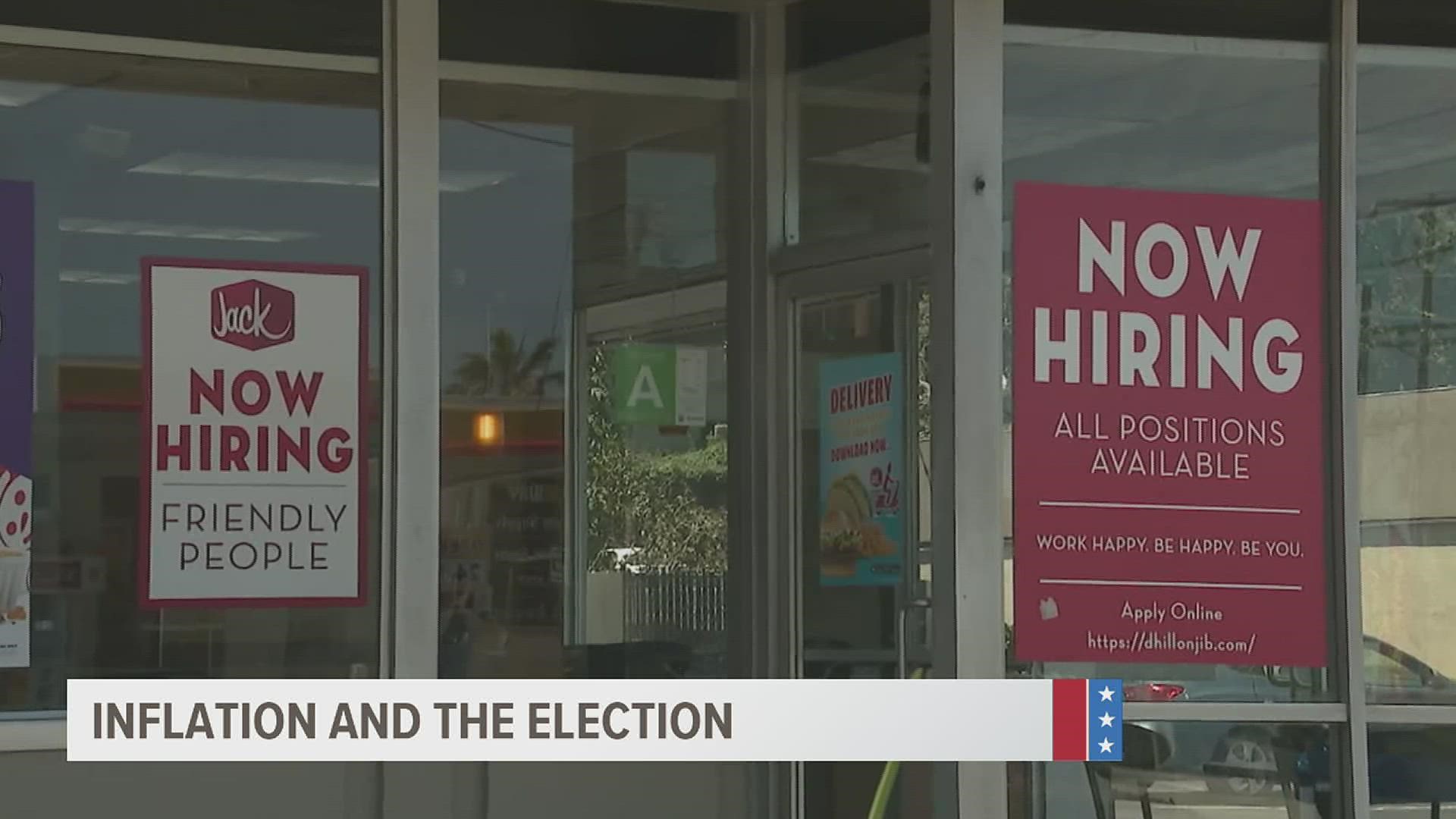HARRISBURG, Pa. — As inflation hit a high of 9.1 percent in June, stocking the bar at Greystone Public House in Lower Paxton Township, Dauphin County became more expensive. Alcohol, as well as the cost to ship it, was rising along with energy price hikes and supply chain snarls.
“Our costs have gone up and restaurant bottom lines are tighter than most businesses,” said general manager Bill Collier.
The business had to pass some of its higher costs onto customers by raising drink prices by $1 each. With other items, they had to get more creative.
“Crab prices last year went through the roof for everybody and it was almost impossible to sell a crab cake,” Collier said. “So we took Chilean seabass and we made a cake out of them.”
The tavern’s history dates back more than 200 years, and Collier said he would like to see it survives many more. He said owners and operators of restaurants and event venues need government policies that help avert the wild cost swings of the pandemic that resulted from labor and supply shortages.
“I don’t think anybody needs help. I think really what they need to do is stabilize things so people do know what to expect and can plan accordingly,” he said.
Nearly half (45 percent) of Pennsylvania business owners said their top challenges were inflation and rising costs, according to the Lincoln Institute’s fall 2022 Keystone business climate survey. A Politico/Morning Call poll found more than 80 percent of voters say the economy would play a major role in deciding for whom to vote.
Here are what state and federal-level candidates are saying they will do to cut costs for seniors and everyone else:
On the state level, Pennsylvania has had for years the second highest corporate net income tax rate in the country, at 9.99 percent. Earlier this year lawmakers passed an agreement to lower the tax to 8.99 percent in 2023, then continue dropping by 0.5 percentage points every year until the rate hits 4.99 percent in 2031.
Both gubernatorial candidates support lowering the tax more and faster.
Democrat Josh Shapiro said the rate should be reduced to 4 percent by 2025.
Republican Doug Mastriano wants to lower it to 2.4 percent by 2026, or 2030 if lawmakers can’t agree to a quicker timeline. Mastriano’s plan would make Pennsylvania’s corporate tax rate the lowest in the country. He is also calling to eliminate all property taxes for homeowners and slash the state’s gas tax.
“We will roll back taxes so you can live your lives as you see fit and keep more of your hard-earned money,” Mastriano said in a campaign ad posted on his public Facebook page.
Both candidates also want to help Pennsylvania businesses by cutting red tape.
Mastriano says he would remove at least 55,000 state regulations in his first year as governor.
Shapiro says he would streamline business permits.
“You apply for that permit, we’ll tell you it will take 30 days to get an answer,” Shapiro said during an interview at the PA Chamber of Commerce dinner in early October. “I’m willing to put my money where my mouth is. If you don’t get the answer for that application within 30 days, we’ll give you your money back. We’ll give you your application fee back. We need to change the mentality, move quicker, work faster, get people answers, and try to get to ‘yes.’”
On the national level, both candidates for U.S. Senator from Pennsylvania want to tackle high gas costs as a driver of inflation, but they have different ideas on how to do so.
“What we have to do is ensure that we don’t have increased inflation and the best way to do that is reduce gas prices,” Republican Mehmet Oz said in the Senate debate on Oct. 25. He later said he would increase natural gas production by allowing more fracking: “If we unleashed our energy here in Pennsylvania it would help everybody.”
Democrat John Fetterman said he supported fracking at the debate, but has also said he wants to cut into major oil companies’ profits. Four of the largest oil companies in the world reported their combined net income at nearly $50 billion from July through September.
“That’s what we need to fight about right now, is inflation because it’s a tax on working families,” Fetterman said at the debate. “We must push back against corporate greed. We must also make sure that we’re pushing back against price gouging.”
You can find more information on candidates, important dates and how to register to vote on our Election Guide page.

